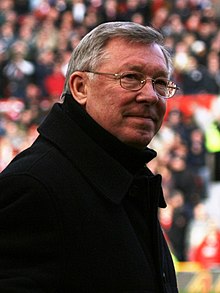Coach (Football) – Wikipedia
A wikipedia article, free l’encyclopéi.

In football, the coach is the person responsible for leading a team in a football club or a national team, in training and in match
The coaches, at the amateur and professional level, can have broader responsibilities than the sole management of their team. This axis of the function leads to again to define it as a general or manager, which theoretically has extensive responsibilities on the club’s sports policy. For national teams, the term coach is used for the position whose responsibility is also to choose the best selectable players in a nation.
Team coach [ modifier | Modifier and code ]
The coach is responsible for the results of his team in front of club leaders.
The responsibilities of a coach in a professional football club generally include:
- The choice of players for matches, and the training used by the team.
- The choice of game strategy, and the information of players on the field.
- The motivation of the players, before and during the matches.
- The individual progression of each player.
- The delegation of certain responsibilities to assistants and assistants: specific training, care, medical follow -up, etc.
- Interaction with the media before and after the matches.
- The recruitment of players (purchase, sale, loan) for the first team, but also for the training center.
Some of these responsibilities can be shared with a sports director (or football director), including recruitment, or delegates to an assistant.
Additional functions [ modifier | Modifier and code ]
A manager may also be interested in the club’s economic policy: marketing, sponsor, club profitability, etc. This is often more the case in relatively modest clubs.
In fact, a coach is often a former player, but it is not a general rule [ 2 ] . To exercise at a professional level, the validation of a certain number of diplomas is generally a prerequisite [ 3 ] .
Formation [ modifier | Modifier and code ]
At the professional level, coaches must have a minimum level of training to lead to a certain level. A derogation can be assigned one to two years to comply.
Nomination [ modifier | Modifier and code ]
In 2013, the website So Foot publishes his list of the hundred best football coaches in history. The first ten are the Italian Arrigo Sacchi, the Scottish Alex Ferguson, the Brazilian Telê Santana, the Dutchman Rinus Michels (named coach of the XX It is century by FIFA in 1999), the Soviet Valeri Lobanovski, the Dutchman Johan Cruyff, the Portuguese José Mourinho, the Spaniard Pep Guardiola, the Argentinian Helenio Herrera and the English [ 6 ] .
Twenty coachs won the Football World Cup. Only the Italian Vittorio Pozzo (1934 and 1938) is double winner [ 7 ] . In addition, Mário Zagallo, Franz Beckenbauer and Didier Deschamps, had already won him as a player [ 8 ] .
Notes [ modifier | Modifier and code ]
- Only State diploma of the French system.
- High -level or very good amateur players can directly access this level.
References [ modifier | Modifier and code ]
- ‘ Sir Alex Ferguson appointed Ambassador of UEFA coaches » , Uefa.org, (consulted the )
- ‘ Football coach: how to become it? » , on Sport (consulted the )
- ‘ Training of coaches – UEFA.ORG » , (consulted the )
- ‘ Uncatef become a coach » , on www.unecatef.fr (consulted the )
- ‘ Trainer course – I want to become a coach and make it my job » , on www.fff.fr (consulted the )
- ‘ Top 100: coaches » , on Sofoot.com (consulted the )
- AFP, ‘ World Cup: 88 years of a great and beautiful story » , on Point ,
- Nicolas Couet, ‘ World Cup: Deschamps, this giant! Only the 3 ewinner as a player and coach » , RMC Sport,
Recent Comments